North Texas Clinical Pharmacology Cancer Core
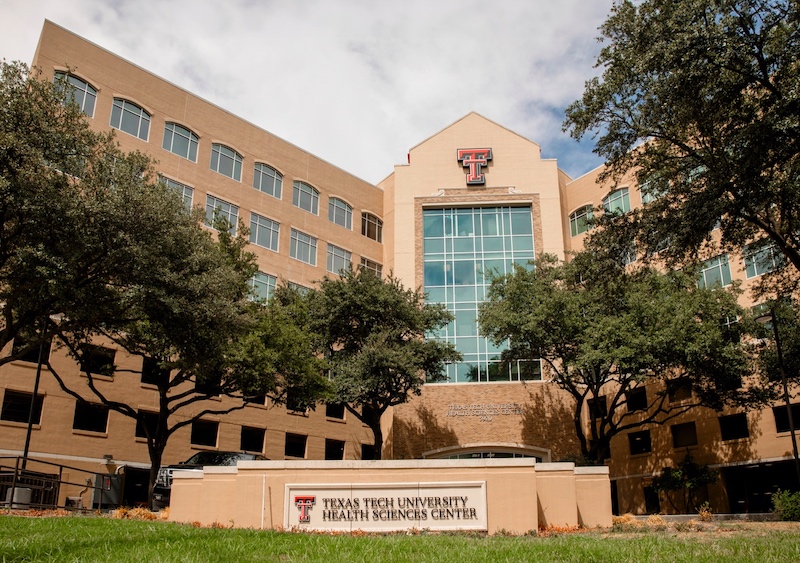
NTCPCC is an advanced analytical laboratory core facility and is part of the Clinical Pharmacology and Experimental Therapeutics Center at TTUHSC. In 2011 and 2016, Cancer Prevention and Research Institute of Texas (CPRIT) core facility support awards (CFSA) was received to establish and maintain the North Texas Clinical Pharmacology Cancer Center (NTCPCC) with the specific aims of delivering pharmacokinetic, pharmacodynamic, and pharmacoepidemiology expertise in support of nonclinical and clinical investigations of potential cancer therapeutics and diagnostics. The analytical laboratory is the cornerstone of the NTCPCC and consists of state-of-the-art mass spectrometry instrumentation to accurately and precisely quantitate analytes in a variety of biological matrices using limited sample volumes.
The centerpiece of the NTCPCC is three state-of-the-art SCIEX mass spectrometers include a Sciex 7500 QTRAP®, Sciex 6500 QTRAP® with SelexION™, Sciex 7600 QTOF™, and Agilent 7700x ICP-MS. Other available detectors include UV/Vis, electrochemical, and evaporative light scattering, Leica LMD6® laser microdissection system to facilitate quantitative analysis of analytes in tissues two Labconco CentriVaps® with -105 ºC cold traps for sample processing as well as a Tomtec Quadra 4® and an Eppendorf epMotion liquid pipetting systems for automated sample handling. Sample storage includes two refrigerators (5 ± 3 ºC), two freezers (-20 ± 10 ºC), and four ultra-freezers (-80 ± 10 ºC) all of which are continuously remotely monitored. Sample inventories are electronically managed to facilitate ‘chain of custody’ like control. Most pharmacokinetic pharmacodynamic modeling is performed using Pharsight’s WinNonlin® software program.
Providing cutting edge workflow for preclinical and clinical cancer studies. We aim to provide comprehensive analytical support to cancer research community in North Texas
Analytical Instrumentation
The Center's analytical laboratory specializes in developing and validating methods for the analysis of both small- and large-molecule pharmaceutical agents, their metabolites, and biomarkers in complex biologic matrices using state-of-the-art bioanalytical techniques.
SCIEX 7500 is a QTRAP Triple Quad" system featured with MRM3 QTRAP scan and an enhanced product ion (EPI) scan. Those are effective scan solutions that removes high background and interferences and can achieve lower detection limits compared to most existing triple quad systems. Especially with MRM3 scans, it offers better specificity and quantitative performance for drug metabolites that share similar structure or similar mass of fragment ions.
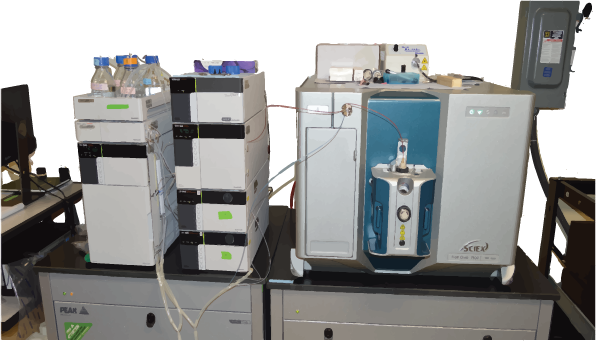
ZenoTOF 7600 is a Q-TOF instrument equipped with a hybrid collision cell. The collision cell includes two collision modes -collision induced dissociation (CID) and electron activated dissociation (EAD). EAD (radical) and CID (thermal) collision could produce invaluable complimentary fragmentation maps that significantly increase the identification rate for biomolecule structures.
ZenoTOF 7600 is also a great tool to explore intact proteins with its build-in peak deconvolution software. With the ability to look at the intact proteins, we are easily on the path to explore protein posttranslational modifications and protein-protein interactions.
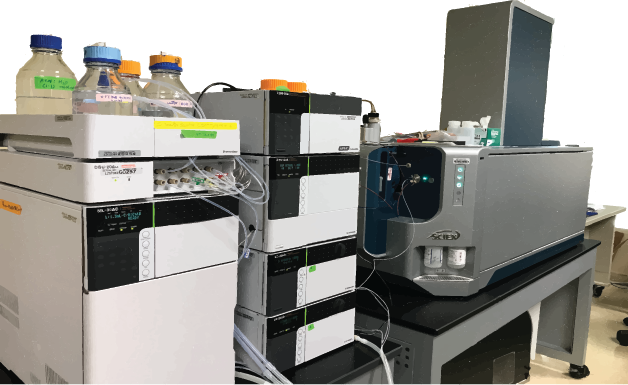
SCIEX 6500 QTRAP" is a traditional Triple Quad system. QTRAP means the third quadrupole can be configured as a Linear Ion Trap (LIT) to provide simultaneous quantitation and identification without losing the sensitivity.
Our SCIEX 6500 is coupled with a differential ion mobility mass spectrometry SelexION, which provides the unique capability to separate analytes with identical molecular weights and retention times.
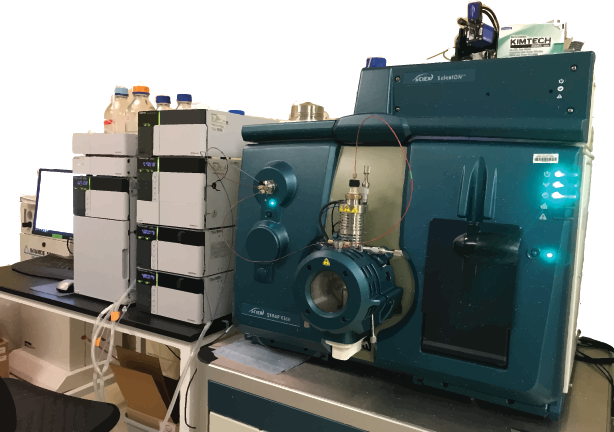
This is a contact- and contamination-free method for isolating specific single cells or an area of tissue. This tool allows us to study the biochemical heterogeneity within a tumor or among cells. It captures the spatial profile of quantitative analysis. It also enables single cell metabolomics or proteomics study for cancer as well as other diseases.
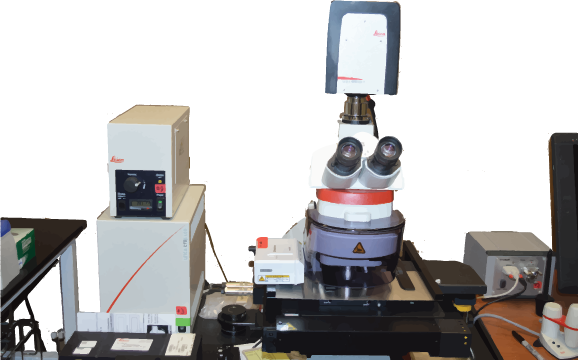
North Texas Clinical Pharmacology Cancer Center Publications
https://scholar.google.com/citations?user=litnKbEAAAAJ&hl=en
Faculty Members:
Core Director - Li Li, Ph.D.
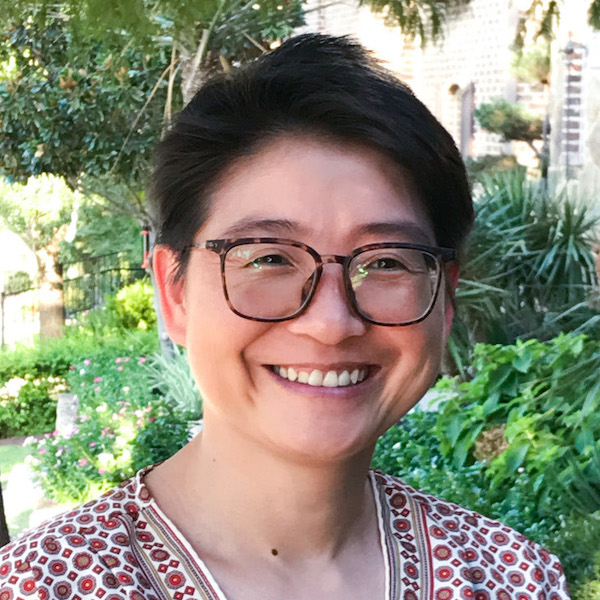
Assistant Professor
Departments of Pharmacy Practice and Pharmaceutical Sciences
Focus of Research:
Drug Metabolism and Drug Discovery
Dr. Li is a basic science and translational medical researcher who has broad training in analytical chemistry, medicinal chemistry and structural biology. She works closely with the North Texas cancer research community to provide comprehensive analytical support through the North Texas Clinical Pharmacology Cancer core. Dr. Li is an interdisciplinary scientist applying mass spectrometry, cryo-electron microscopy, and other advanced analytical tools to elucidate the structure and evaluate the level of disease biomarkers. Her work focuses on discovering new biomarkers diagnostic for neurodegenerative diseases and cancer. Her group also works to combine mass spectrometry-based analytical platforms with cell disease models to explore novel drug targets.
Investigator/Director Pharmacoepidemiology - Carlos A. Alvarez, Pharm.D. MSc, MSCS, BCPS

Associate Professor
Departments of Pharmacy Practice
Focus of Research:
Pharmacoepidemiology, drug safety and effectiveness
Dr. Alvarez is the Director of the Pharmacoepidemiology Core in the Center. He has expertise in assessing the safety and effectiveness of medications using large-scale administrative claims, and clinical data. Dr. Alvarez has expertise in epidemiologic methods and biostatistical techniques to address inherent biases encountered in pharmacoepidemiology. He has over 30 peer-reviewed publications, is the senior author on the Diabetes chapter of Pharmacotherapy: A Pathophysiologic Approach, and has presented his research at many national and international meetings. His research has been funded by the National Institutes of Health, the Cancer Prevention and Research Institute of Texas, and several private foundations.
Investigator/Director Medicinal Chemistry - Nadezhda German, Ph.D.
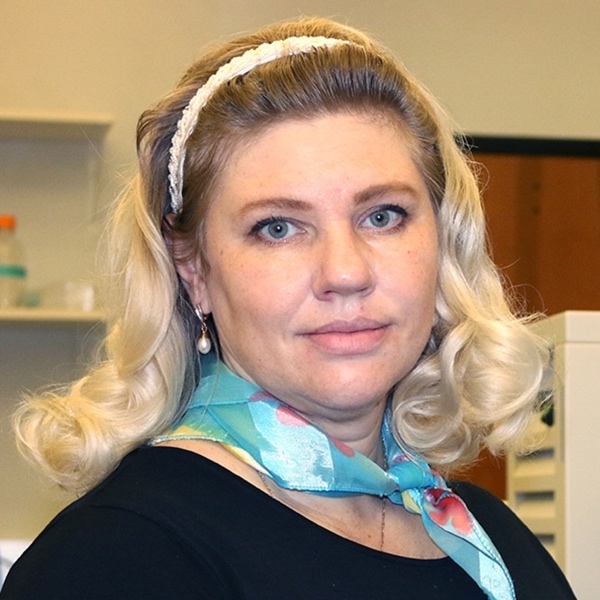
Associate Professor
Department of Pharmaceutical Sciences
Focus of Research:
Design and synthesis of GPCR ligands Evaluation of compounds as potential treatment
of triple-negative breast cancer (TNBC)
Dr. German joined the faculty at the Department of Pharmaceutical Sciences at TTUHSC in August 2014. She obtained her PhD in Medicinal and Natural Products Chemistry at the University of Iowa with Dr. R. Kerns, where she worked on synthesis of chemical probes designed to overcome bacterial resistance to antibiotics. This work resulted in discovering of novel inhibitor NorA and MepA efflux pumps as one of the most potent compounds to date. In 2007, Dr. German joined research group of Dr. R. Glennon at Virginia Commonwealth University as a postdoctoral fellow where she continued her medicinal chemistry-based research in the area of allosteric modulation of nicotinic receptors. In 2010, she continued her training at RTI International working with Dr. Y. Zhang on design and synthesis of various ligands for CNS receptors.
Investigator/Director Special Populations - Ronald G. Hall II, Pharm.D., MSCS

Associate Professor
Departments of Pharmacy Practice
Focus of Research:
Dose Optimization and Outcomes Research
Dr. Hall serves as the Vice-Chair of Research for the Department of Pharmacy Practice, Division Head of Clinical and Translational Research, and Director of the Dose Optimization and Outcomes Research (DOOR) program. Dr. Hall work has resulted in over 70 peer-reviewed publications. He has collaborated on grants funded by the Cancer Prevention and Research Institute of Texas, National Institutes of Health, Laura W. Bush Institute for Women's Health, as well as the pharmaceutical industry.
William "Trey" Putnam, Ph.D., RAC

Professor
Departments of Pharmacy Practice and Pharmaceutical Sciences
Focus of Research:
Clinical Pharmacology and Metabolism
Dr. Putnam's work in clinical pharmacology and experimental therapeutics over the past 20+ years has led to the development, approval and commercialization of numerous drugs and biologics for various clinical indications. His experiences as a faculty at research-intensive colleges of pharmacy, Group Leader for bioanalytical chemistry at a leading non-for-profit research institute, and General Manager for an international drug-development focused scientific and regulatory consulting firm provide him with a broad, in-depth perspective uncommon in analytical laboratories.
Research Staff
Senior Research Scientist - Md Abdul Hakim, Ph.D. |
|
|
|
Expertise in the development and application of analytical methods for the characterization and quantification of metabolites, lipids, and proteins derived from complex biological samples utilizing LC-MS/MS instrumentation (Triple Quadrupole, Time-of-Flight, Orbitrap). |
Senior Research Scientist - Blessy Abraham Paul, Ph.D. |
|
|
|
Expertise in Biochemist and cell biologist using confocal microscopy, biochemical approaches, and cellular disease models to investigate disease mechanisms in neurodegeneration, while working closely with the mass spectrometry core. |
Research Assistant - Ai Vy Le |
|
|
|
Integrates LC-MS and cell culture systems to characterize metabolomic changes in Alzheimer’s disease. |
Advisory Board:
| Ulrich Bickel, M.D. | Chair | TTUHSC |
| Thomas Abbruscato, Ph.D. | TTUHSC | |
| David Gerber, M.D | UTSW | |
| Eric MacLaughlin, Pharm.D. | TTUHSC | |
| Sanjay Srivastava, Ph.D. | TTUHSC |



